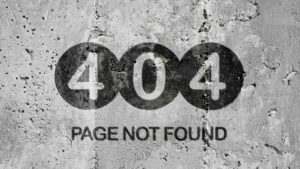How important is preparation when selling a business?
The short answer? Preparation is everything.
Let’s pretend that you are buying a car. You find two nearly identical cars – same price, make, model, year and color. One seller has the title ready to go, the car had been recently detailed and the interior smells nice. The other seller isn’t sure where the title is, the car is full of junk and doesn’t look or smell like it’s been cleaned in this century. Which one are you going to buy? The answer may seem obvious, but in many cases business sellers try to pass off their wildly unprepared business as one ready for buyers. This is a big mistake. First impressions are extremely important, so your business needs to be ready for buyers before buyers ever come through the door.
How do you prepare a business for the market?
Organize Your Books
Business buyers aren’t typically buying the building associated with your business, and the value of a business isn’t based solely on tangible assets like furnishings, inventory and equipment – your listing price is, for the most part, based on your cash flow. How can you prove that it’s worth what you say it is? A big box of crumpled paper isn’t going to cut it. Neither is a poorly photocopied P&L and the last page of a tax return. You need to get your books in order, and you need to do it now. If you don’t know where to start, ask your business broker for advice or use the services of a CPA who is familiar with the accounting needs of a business that will be for sale.
Clean It Up
Back to the idea of first impressions – if you own a bar with carpet on the floors that have never been cleaned and rafters full of cobwebs you’d better believe no buyer in their right mind is going to pay you top dollar. The mess and smell aside, a filthy location or one in considerable disrepair tells a buyer that you haven’t taken care of your business the way that you should – meaning there are probably many more skeletons in the closet that they won’t be willing to pay for. Give your business a thorough once-over and fix what’s broken so you don’t squander that all-important first-impression.
Decide On Answers To Buyer Questions
When you are selling your business you are making a sale – and like any good salesman you should both know and be able to communicate your product (your business) to buyers. Talk to your business broker about what types of questions a buyer might ask and then think through how you might answer those questions. You want to look professional and polished in your first meeting or conference call with a buyer, not like a deer in headlights.
If you are considering selling your business and aren’t even close to a point where buyers can come in the door – don’t worry. Your job has been running your business, not selling it, so you will need to adjust your focus a bit in the weeks and months before your listing goes live. Use your business broker to help you prepare and you will be ready for those first looks.
Do you own a business with the proverbial big box of crumpled paper and would like some tips on how to start organizing your books? Would you like to know more about what buyers are typically looking for? Ask us! Leave questions or comments here and we would be happy to help.
Michael Monnot
941.518.7138
Mike@InfinityBusinessBrokers.com
12995 South Cleveland Avenue, Suite 249
Fort Myers, FL 33907





